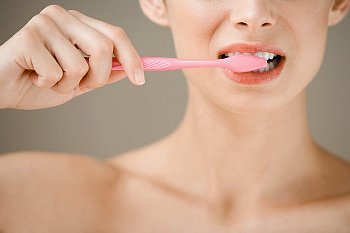
The age group with the highest cavity rates, as well as the reasons for all those cavities, may come as a shock;
people ages 20 to 44 have the highest rate of cavities, compared to candy-obsessed children.
But why? Other than the obvious steps, including brushing and flossing twice a day and visiting a dentist regularly, here a few additional steps you need to take to help prevent future cavities.
Brush Better.
Okay, okay. You could have guessed this one. The best tooth-brushing practices include using a soft-bristle brush, cleaning ALL surfaces of your teeth (including scrubbing the inner areas of your teeth and your back teeth, and flossing the spaces in between). On average, proper brushing should take about two minutes.
Snack Less Often.
Chewing stimulates your salivary flow, which then helps neutralize acid and rinse away food, the American Dental Association reports. But when you snack, you don’t generally produce as much saliva, which can leave your teeth vulnerable to acids – and this enamel-eroding acid can come both from plaque bacteria and acids in foods and beverages.
What is tooth enamel, by the way? It’s a thin, protective covering, that can never be replaced once damaged or lost.
In general, the less saliva you have, the more tooth decay you’re going to have. Plus, it can take an hour for the mouth to neutralize acids, and your teeth don’t have time to recover if you’re constantly eating.
The best way to control the situation? Limit sugary and acidic foods and drinks to mealtimes, and avoid sugary hard candies and taffies, which can stay on teeth for longer periods of time. You should be especially vigilant if you’re taking medications that result in dry mouth, such as those that treat depression and high blood pressure. If you crave candy or gum, or have dry mouth, choose sugar-free versions that contain xylitol, which can help prevent tooth decay. Or, enjoy some chocolate instead.
Drinking Soda/Sports Drinks.
Most dentists agree that sugary beverages are possibly some of the worst things for dental health, thanks to sugar and citric acid, a preservative that can erode tooth enamel. In fact, a new study found that sports and energy drinks in particular are causing irreversible damage to the teeth of U.S. teens and young adults due to high acidity levels. So, put the soda down and drink more water.
Drinking Only Bottled Water.
Yes, any water is better than sugary and acidic drinks. But if your community has a fluoridated water supply, you should take advantage of it. That’s because fluoride, a mineral that can prevent and even reverse tooth decay, may not be found in all bottled water, or bottled water may contain only miniscule amounts, according to the CDC.
Approximately, 73.9 percent of the current U.S. population has access to regular water that has enough fluoride to protect teeth. “Fluoride is not just for kids,” says R. H. Price, a dentist and American Dental Association spokesperson in Newton, Mass., so make sure your toothpaste also contains fluoride.
